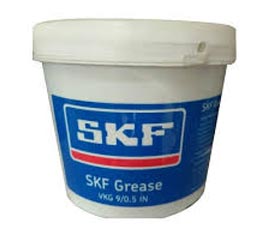A proper lubricant will reduce friction between the internal sliding surfaces of the bearings components and reduce or prevent metal-to-metal contact of the rolling elements with their raceways. Proper lubrication reduces wear and prevents corrosion, insuring long service lives for bearings.

IMPORTANCE OF GREASE
- Reduce the friction and abrasions caused by direct metal-to-metal contact
- Transport heat generated by friction
- Prolong overall bearing service life
- Prevent harmful rust and corrosion
- Prevent foreign objects and contamination from interfering with the rolling elements
AVOID THESE MISTAKES WHILE CHOOSING THE GREASE
- Selecting The Wrong Lubricant Type –
Grease and oil each have their own advantages and disadvantages, depending on the specific application. - Using Too Much Or Too Little Grease/Oil –
Too much grease can cause bearing temperature to rise, especially when operating at high speeds, while too little grease results in harmful metal-to-metal contact. - Mixing Grease And Oil –
Each type of lubricant provides different benefits, but they should always be used separately. - Contaminating The Grease/Oil With Objects Or Water –
The lubricant’s primary function should be to seal the contact surface and prevent the entrance of media or water.


